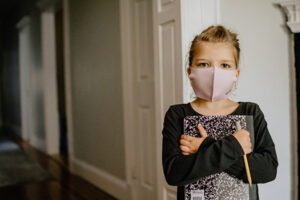 My kids love history. Can’t say that I was the same as them when I was at school. My eldest daughter is currently studying tragic events during history (natural and person made) and right now her focus is on the bubonic plague which I am so totally across now that we are in school@home mode! However, I am not going to launch into a history lesson on the bubonic plague. Rather, a reflection on the current pandemic that has spread across the world with the Delta wave currently making its way through Australia.
My kids love history. Can’t say that I was the same as them when I was at school. My eldest daughter is currently studying tragic events during history (natural and person made) and right now her focus is on the bubonic plague which I am so totally across now that we are in school@home mode! However, I am not going to launch into a history lesson on the bubonic plague. Rather, a reflection on the current pandemic that has spread across the world with the Delta wave currently making its way through Australia.
My curiosity lends itself to the history lessons that will be taught in centuries to come, about the Coronavirus Pandemic. Researchers across numerous fields today and into the future are and will continue to carefully capture and analyse all elements of the experience: health, political, social, educational, technological (the list could go on).
In the social sciences field we are beginning to see the frontline anecdotal observations during the beginning of the pandemic and throughout begin to take more shape in the development of and publication of research results. That research is being informed by quantitative data and/or qualitative data that will no doubt build a picture of the events at this point in time for future generations.
Today, I participated in a Webinar convened by ANROWS and the University of Melbourne providing some initial insights into the DAHLIA-19 project, which looks at family violence during COVID-19 across four continents including Australia. This research won’t be published for a number of months yet and findings won’t come as a surprise to anyone in this audience.
I know too that many of our member organisations are also working on research projects documenting the experience of COVID-19 as well.
Here at FRSA, we are aiming to play our part in analysing the impacts of the pandemic as we finalise some work looking at demand for services in the sector during COVID-19. In addition, our commissioning of AIFS to look at the use of telepractice during COVID-19 by the family and relationship services sector is another opportunity to provide an evidence informed picture of this time in our existence. My sincere thanks to all our members who participated in these endeavours, whether that be through advisory groups and/or completion of surveys. In doing so you are leaving a legacy that others will draw on in the future. We are also looking at other key areas of research to be explored further and will once again draw on the expertise in our membership to assist us with those processes.
Living in the here and now, I certainly appreciate the significant challenges and hardships that many services, their staff and their clients are experiencing. Hearing today that Victoria is in its 200th day of lockdown is a stark reminder of the significantly different journey Victoria (and Melbourne in particular) has been experiencing. NSW now finds itself in an extremely volatile situation. Even with the short lockdowns in other states and territories this way of living is unnatural in modern society.
Once again, as I have done before, I sincerely thank all of you for the role you play in helping children, men, women, families and communities to live, thrive and survive through these unprecedented times. We need to be looking out for each other as well – so, do take care and don’t hesitate to reach out to us here at FRSA if we can support you in any way.
By Jackie Brady
Read the full eBulletin





